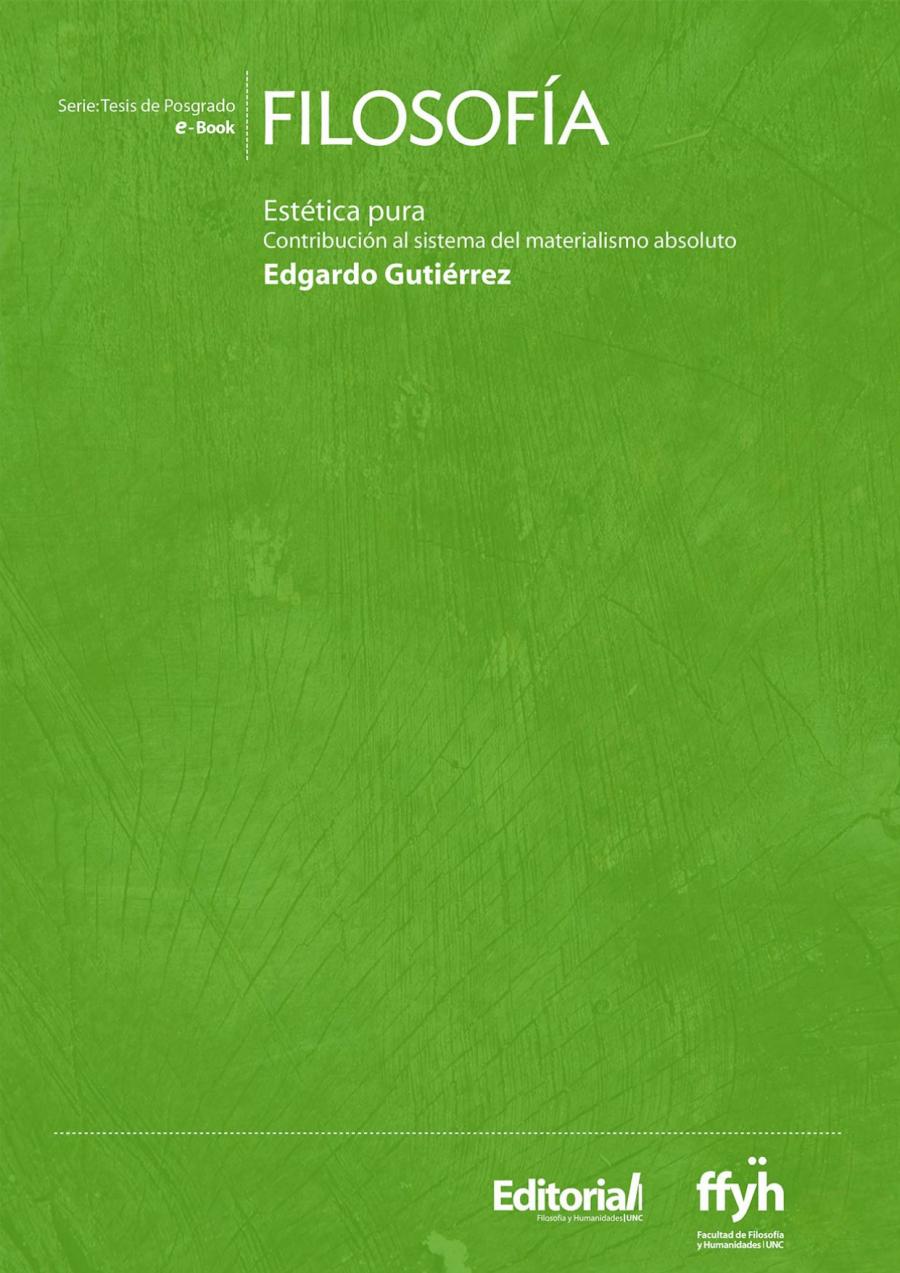Pure aesthetics. Contribution to the system of absolute materialism
Keywords:
philosophy, aesthetics, materialism, perception, pleasureSynopsis
The research carried out in this work proposes the determination of the specific object of aesthetics, obliterated by the classical identification of aesthetics with the philosophy of art, based on Hegel's formulation, which has presented an obstacle to philosophers thematizing such a specific object. This determination would allow for the constitution of a pure aesthetics; that is, an aesthetics autonomous from metaphysics, ethics, politics, and history. The phenomenon of the aesthetic, as we understand it, manifests itself in perception and pleasure. The research has been divided into two parts, which respectively address these two manifestations of the aesthetic. The first part presents a theory of perception (Estesiology), and the second part presents a theory of pleasure (Hedonology). Each section covers the most relevant contributions of philosophers who, from different traditions of thought, have found elements of the pure aesthetics that we seek to establish. Thus, in the first part, which reviews the aesthetic theory that focused on perception and the imaginary, we examine the work of Kant, Sartre, Bergson, Merleau-Ponty, Lucretius, Epicurus, and Nietzsche. In the second part, we explore the theories of pleasure in Kant, Freud, Marcuse, Aristotle, and Epicurus. In the conclusions, through the mediation of Deleuze's and Heidegger's interpretation of the aesthetic, we arrive at the final formulation of the problem from a materialist perspective, and in the appendix of the work, we open up avenues for future research within the framework of the system of pure or absolute aesthetics.

Downloads
Published
Categories
License

This work is licensed under a Creative Commons Attribution-NonCommercial-ShareAlike 4.0 International License.


